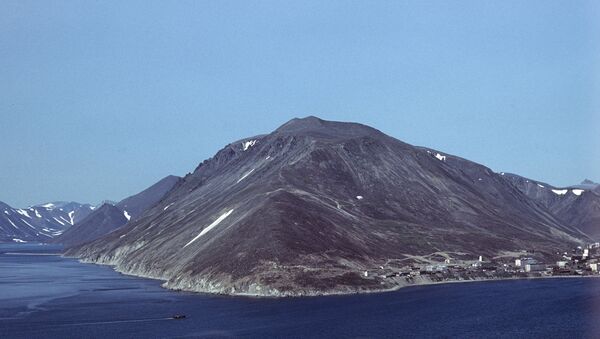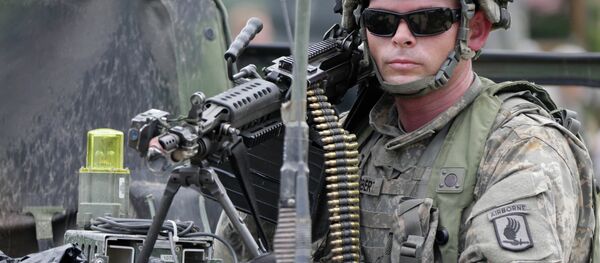WASHINGTON (Sputnik), Liudmila Chernova — The families of Arctic’s Diomede Islands separated during the Cold War could reunite as early as next year, Vice President of Circumpolar Expeditions (CPE) Peter Wallack told Sputnik.
The Diomede Islands consist of Big Diomede, part of Russia’s Chukotka Autonomous Area, and America’s Little Diomede. They are located in the middle of the Bering Strait, between Alaska and Siberia, and are less than 2.5 miles apart.
During the Cold War, indigenous people who could previously freely travel between the islands became separated by the constituted border between the United States and Russia.
The company was contacted by the Native Village of Diomede on Little Diomede to help them locate relatives in Chukotka, especially those who used to live on Big Diomede.
"Our plans are to continue to gather information about Diomede Island families, to identify and locate their relatives," Wallack explained. "We will be bringing a group of elders from Little Diomede to Chukotka to assist with locating relatives, and to work with family members to plan the family gathering visit."
The visit will take place in 2016 or 2017 on either island if the necessary permits can be arranged, Wallack said, adding that the visit must be implemented within the next couple of years.
The islands’ elders pass away every year, Wallack explained, and their children have either a vague memory of "what it’s like to live out there," or have memories passed down from parents and grandparents.
"So every year we take one step further from the generation who actually knew each other," he elaborated. "If we wait long enough, instead of visiting a family member who we might actually be able to connect with, we’re really just visiting a location where, at one point, somebody in my past who I’m related to used to live."
Wallack argued it would be better to have the gathering held on Big Diomede for logistical and cultural reasons.
More family members from Chukotka will be able to attend if the visit occurs in Russia, Wallack claimed, because it will be easier for them to travel the short distance by boat to Big Diomede and to get necessary travel permits.
"The cultural reasons are that there used to be five villages on Big Diomede, and it is important for the Diomede islanders and their descendants to walk the grounds of their ancestral homes," Wallack observed.
A major challenge for the islanders is the complex procedures and limited number of locations for issuing international passports and processing visas.
"For those people in Chukotka requiring a visa to travel to the United States, the process can be complicated, time consuming and expensive, especially when a personal interview with a US consular official is required," Wallack said.
"By the time they decided it was not, it was too late, and the trip had to be postponed," Wallack said, lamenting the missed opportunity.
Russia, he suggested, could play a role in the project by informing people about it as well as by granting permission to hold the gathering meeting on Big Diomede.
"We would like to develop working relationships with Russian organizations interested in helping us with the project," he said.
So far CEP has focused on the research aspect of the project as well as on preparation in Alaska and the United States, but the organization has also tried to inform people in Chukotka about the project through the Bering Strait Messenger Network and by word of mouth.



